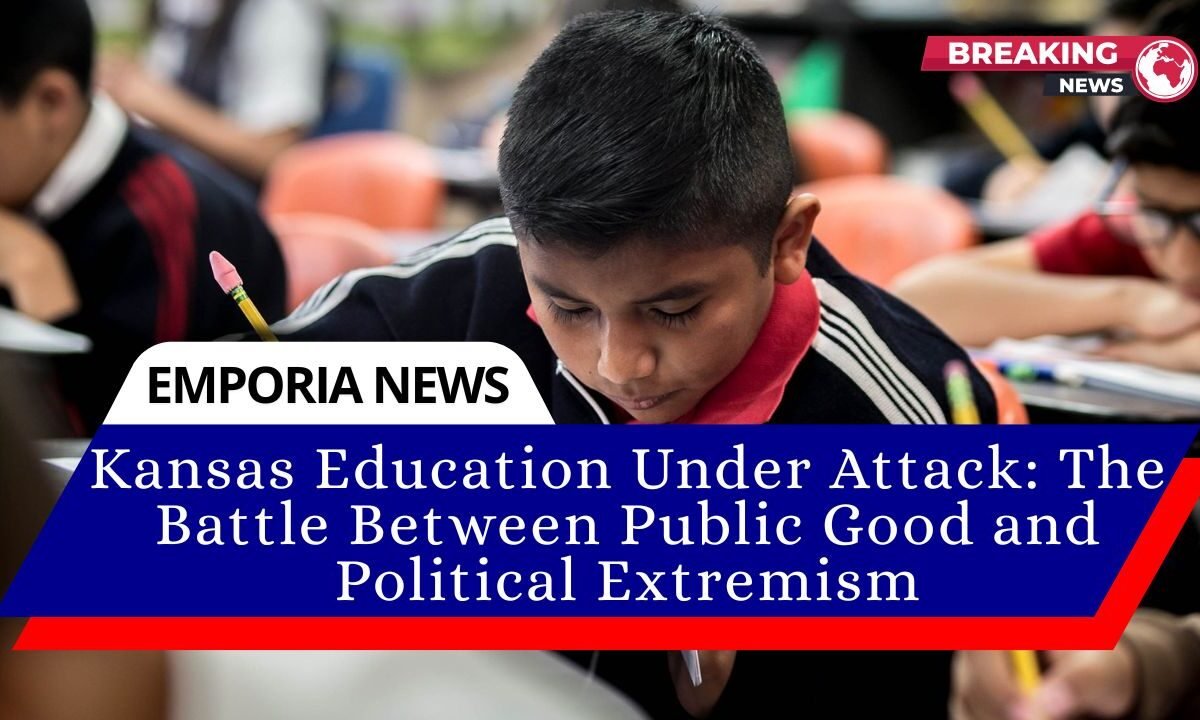Efforts to promote the common good in Kansas and across the United States are increasingly met with fierce partisan resistance.
Among the latest battlegrounds is the U.S. Department of Education, now under threat of elimination, with implications that reach far beyond administrative restructuring.
This isn’t just about policy—it’s about the very foundation of a society built on shared values and access to opportunity.
Supreme Court Clears Path for Dismantling the Education Department
In a recent and controversial decision, the U.S. Supreme Court upheld the Trump administration’s plan to dismantle the Department of Education.
A previous injunction that paused mass layoffs was overturned, paving the way for the dismissal of all 1,400 department employees.
The department administers funding for public schools, enforces civil rights protections, oversees student loans, and promotes educational access—each a pillar of the public good.
A Historical Pattern of Undermining Education
The current effort to dismantle the Department echoes a longstanding pattern in American history. The department was first established in 1979, but even earlier attempts to create a national education authority date back to the 1830s.
As detailed in NPR’s “The First Department of Education” podcast, the common school movement in the Northeast was motivated by a desire to unify a fragmented nation, particularly in response to nativist fears about Irish Catholic immigration.
Advocates saw public education as a means of fostering national unity—not just through academic learning, but by instilling a sense of citizenship and shared purpose. Even President James Garfield recognized this, arguing in 1866 that education was the most cost-effective government investment, capable of preventing future national crises.
The South’s Resistance and the Use of Education as Control
Despite these ideals, early national education efforts were quickly abandoned. Critics claimed education was constitutionally unsupported, too expensive, and a threat to local control.
Particularly in the South, education was viewed with suspicion, especially since Black Americans made up large portions of the population. Denying access to education became a tool of social control and racial oppression.
The NPR podcast highlights how a lack of public education in the South left populations vulnerable to demagoguery and manipulation, a legacy that echoes in today’s political climate.
Modern Attacks on Public Good and Performative Politics
The destruction of public institutions is no accident—it reflects a strategic erosion of empathy and shared responsibility. Today’s political theater often glorifies values that should disqualify candidates: government mistrust, vilifying opponents, and using public funds to boost private interests, particularly through school voucher programs.
Such positions reflect a move away from community-minded governance toward performative cruelty. Programs once considered cornerstones of American life—public schools, libraries, universal healthcare, and social safety nets—are dismissed as burdens, not investments.
Government Is Not a Corporation
In this ideological war, many politicians style themselves as CEOs, forgetting that government is not a business. Its purpose is not profit, but the promotion of the general welfare.
Sociologist Chase Billingham of Wichita State University explains that this shift toward rugged individualism—a doctrine that minimizes social responsibility—is a defining trait of right-win g politics.
He references Margaret Thatcher’s claim that “there is no such thing as society” to highlight the danger: as treasured public institutions are dismantled, what remains is a mean, exclusionary society where only the wealthy can afford access to resources like education and healthcare.
Kansas and the Battle Over School Funding
Before Governor Laura Kelly took office, Kansas had a troubling record of underfunding public education. Now, extremists in the state legislature aim to divert public funds to private schools using school vouchers—a move that threatens to further erode public access to education and undermine constitutional commitments to the general welfare.
Public Service Requires Public Belief
Those who despise government and feel indifferent to human suffering should not hold public office. Targeting public education is an attack on the nation’s social fabric, not just a political disagreement.
To preserve the institutions that enable upward mobility and ensure basic dignity, we need leaders who believe in governance, not ideologues eager to destroy it.
The struggle to protect public education and other vital institutions in Kansas and across the U.S. is a fight for the soul of democracy. True public service demands compassion, dedication, and a belief in the collective good.
Without these, society risks becoming increasingly fractured, selfish, and cruel—a place where access to essential services is limited to those who can afford them.
Preserving the Department of Education and reinvesting in the public sector isn’t just about politics—it’s about ensuring a future where every child, regardless of background, has a fair shot at success.




